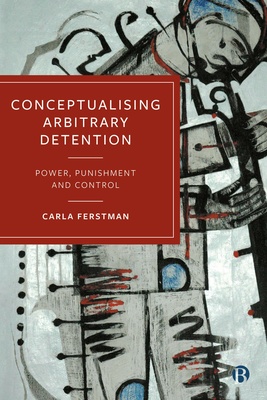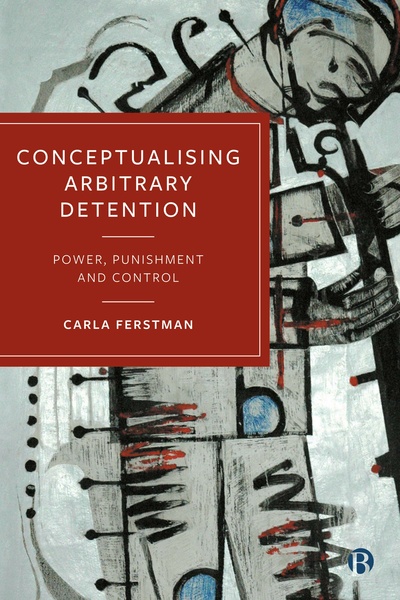Published
May 28, 2024Page count
310 pagesISBN
978-1529222494Dimensions
234 x 156 mmImprint
Bristol University PressPublished
May 28, 2024Page count
310 pagesISBN
978-1529222517Dimensions
234 x 156 mmImprint
Bristol University PressAvailable open access digitally under CC-BY-NC-ND licence
This book examines what happens when states and other authorities use detention to abuse their power, deter dissent and maintain social hierarchies.
Written by an author with decades of practical experience in the human rights field, the book examines a variety of scenarios where individuals are unlawfully detained in violation of their most basic rights to personal liberty and exposes the many fallacies associated with arbitrary detention.
Proposing solutions for future policy to scrutinise processes, this is a call for greater respect for the rule of law and human rights.
"This is a fresh reminder that the international community needs to do more to counter arbitrary detention. Ferstman's rigorous analysis determines with clarity and persuasiveness under what precise conditions deprivation of freedom is warranted and when it is a serious violation of universally recognized standards. This book is an enormous contribution to the struggle to uphold those principles, to denounce aberrant recourse to prolonged or widespread detention without trial, and to devise specific and effective remedies in international and in domestic law to preserve the fundamental right to liberty." Juan E. Mendez, American University Washington College of Law and former UN Special Rapporteur on Torture
"Drawing from the author's wealth of practical experience, this book delves into contemporary issues like detention during pandemics and counter-terrorism measures. Its approach to the subject of arbitrary detention sets it apart, making it a unique contribution to the field." Elīna Šteinerte, UN Subcommittee on the Prevention of Torture and former Chair Rapporteur of the UN Working Group on Arbitrary Detention
Carla Ferstman is Professor of Law at the University of Essex.
1. Introduction
Part A: Theorising and Conceptualising “Arbitrariness”
2. Notions of the “Arbitrary”
3. “Arbitrariness” as an Indication of Harm
Part B: The Law and Practise of Arbitrary Detention in Context
4. Enforcing Hostility and Social Control
5. Deterring Dissent
6. The Securitisation of Detention: Exceptional Regimes, Security Frameworks and Counter-Terrorism Measures
7. Detention of Dual and Foreign Nationals for Leverage
8. Detention and Pandemic Exceptionality
9. Conclusions











